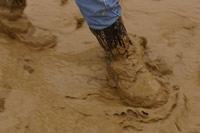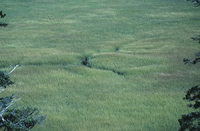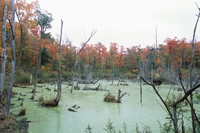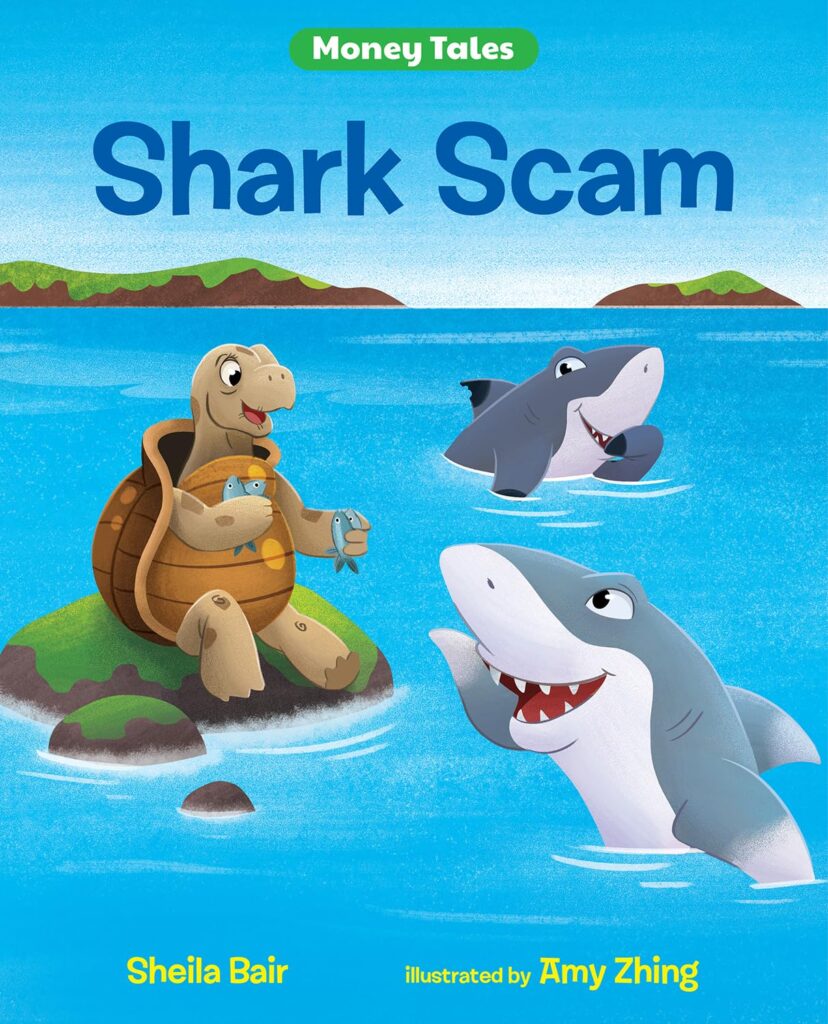
Grades 9-12

Don't have an account yet? Sign up for free
Don't have an account yet? Sign up for free

 Gross! You just stepped into what looked like a perfectly solid piece of ground, and you were rewarded by getting your new shoes sopping wet and muddy. What is it you just stepped in? Chances are you dirtied your new shoes by coming across a fen, a very distinctive type of wetland. Wetlands are located all over the world and in every state of the United States. Although a wetland may have soiled your shoes, chances are you have received many benefits from wetlands, perhaps without knowing about it. This lesson will take you on a journey of discovery into an issue that is now the subject of debate throughout the country: The loss of our wetlands and the economics behind it.
Gross! You just stepped into what looked like a perfectly solid piece of ground, and you were rewarded by getting your new shoes sopping wet and muddy. What is it you just stepped in? Chances are you dirtied your new shoes by coming across a fen, a very distinctive type of wetland. Wetlands are located all over the world and in every state of the United States. Although a wetland may have soiled your shoes, chances are you have received many benefits from wetlands, perhaps without knowing about it. This lesson will take you on a journey of discovery into an issue that is now the subject of debate throughout the country: The loss of our wetlands and the economics behind it.
Who will you be? The developer? The environmentalist? The issue of the wetlands encompasses many different arguments. For this lesson you will learn about the economic concepts of choice, trade-offs, natural resources, and cost/benefit analysis. You will learn these concepts through research and discussion about different uses of the nation’s wetlands.
Have you ever seen an area of land that seems totally inhospitable–perhaps a desert, a mountain top, or some sort of wetland? Would you be sorry if that piece of land were to be developed? What if an ugly swamp that is now a breeding ground for mosquitoes could be turned into a water park, golf course, or fertile farmland? All of these uses of the land might help the local economy far more than a dank old swamp. Or would it?
Since this lesson focuses on wetlands, visit the EPA page https://www.epa.gov/wetlands/what-wetland . Can you think of any economic benefits wetlands offer?

Optional: You may also want to learn about the different types of wetlands. View the https://www.epa.gov/wetlands/classification-and-types-wetlands#marshes page to learn about the different types of wetlands.
Wetlands do more for society than we tend to think. They act as a natural water filter, preventing pollution from entering more accessible bodies of water. Wetlands are natures first line of defense against floods. They act as giant sponges, decreasing the severity of floods. For more information about the economic benefits of wetlands visit the EPA Economic Benefits of Wetlands page.
Wetlands offer many economic benefits for people, including some that are unseen and recently discovered. But what if the value of development outweighs the value of the wetlands. For example, imagine a rapidly expanding city. This city is growing so fast that development of wetlands in areas surrounding the city seems essential for expansion. The expansion in question will create many new jobs, provide space for new homes, and provide incentives for other forms of economic growth. No city or economy wants to become stagnant, and to avoid stagnation cities often seek opportunities for expansion. For a real-life example of a city needing to develop wetlands for expansion read this For the Birds article, which focuses on a United States Supreme Court ruling that prevented the city of Chicago from building a landfill over wetlands.
 Some people in South Dakota are having problems with developing their wetlands for farming. You can read about this issue at the Eastern South Dakota Wetlands page.
Some people in South Dakota are having problems with developing their wetlands for farming. You can read about this issue at the Eastern South Dakota Wetlands page.
You should have an idea of the economic arguments for both sides at this point. Make a choice based on the scarcity of the resources available. When making this choice, use cost/benefit analysis and think about the trade-offs. Is this piece of wetland and everything in it more valuable than the high rise office building that could be built there? What benefits and negatives aspects did the wetland give you compared to the benefits and negatives aspects of the office building?
Did you learn something about the hard choices and painful decisions involved with the wetlands? Natural resources may seem abundant, but that is not always the case. Future generations will suffer from poor management of these resources. Mindful trade-offs and good management are essential for maintaining and preserving these resources as long as possible. But when a choice has to made, you will be prepared to make an educated and responsible one.
Complete the interactive activity below:
The tragedy of hurricane Katrina has taken a major toll on the people of Louisiana and many other Gulf Coast states. When the flood waters abate and damage can be properly assessed, what effect do you think Katrina will on the vital wetlands of the region? Write a short position paper using the ideas and information you have studied in this lesson. In discussing Katrina’s effects on surrounding wetlands, be sure to discuss the economic effects that will follow from any damage done.
Use the following Web sites for additional information about the region:
Louisiana Coastal Wetlands: A Resource at Risk
This National Geographic article provides in-depth information about the Louisiana wetlands as they existed almost a year before Katrina hit New Orleans.

Grades 9-12

Grades 9-12

Grades 9-12

Content Partner
Grades 3-5
